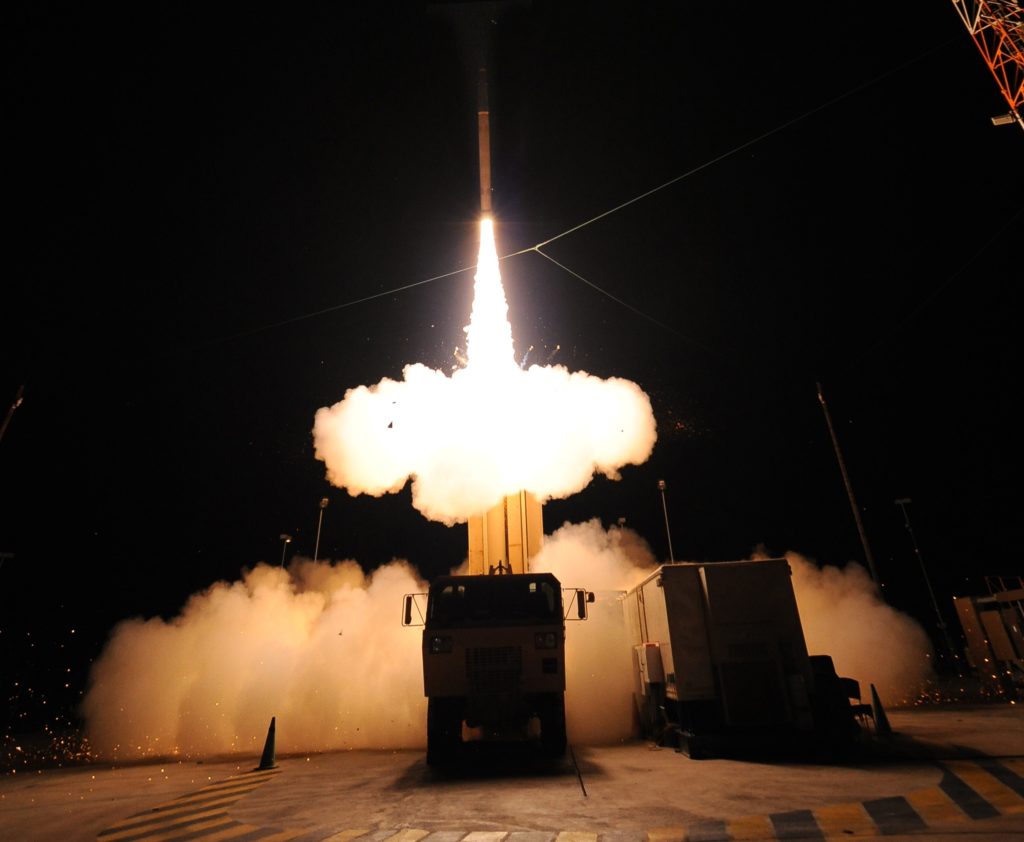The Peninsula
Does the China-ROK Summit Signal the End of Economic Pressure over THAAD? Don’t Hold Your Breath.

By Jenna Gibson
After the surprise October 30 announcement that South Korea and China will begin working together to facilitate better relations between the two countries and that Presidents Moon and Xi would soon meet for a summit, speculation soared that there will finally be a détente between Seoul and Beijing, which have been locked in a battle over the deployment of a U.S. missile defense system for more than a year. Headlines proclaimed the “end” of the dispute over the Terminal High Altitude Aerial Defense system, or THAAD, which China insists will harm their national security. However, these celebrations may be premature.
The official announcement from the South Korean foreign ministry makes it clear that the two sides will begin to work together toward better relations “in every aspect,” and noted that they will continue to communicate with each other about the THAAD problem through military channels. It does not indicate that the issue has been solved, however. In fact, the Korean release even acknowledges that China once again expressed its opposition to the THAAD deployment during recent diplomatic discussions.
Further, as others have pointed out, China never formally acknowledged that it is taking retaliatory measures on South Korean companies over THAAD, and as such there will not be an official edict that reverses the economic pressure campaign. Back in February, a foreign ministry spokesman told reporters, “Whether or not a foreign company can operate successfully in China, in the end is a decision for the Chinese market and consumer,” indicating that the decrease in tourism, consumer goods sales, and cultural programming was simply due to purchasing preferences among the Chinese public. And authorities have continued to insist that China-based Lotte Mart stores were shuttered because of fire safety issues, not because the company provided the land in Seongju where THAAD now sits.
How, then, are Chinese companies to react now that the issue has supposedly been shelved? Sure, the summit, if successful, could signal to Chinese firms that they can begin easing back into doing business with Korean counterparts. But without an official all-clear from Chinese authorities, businesses may be reluctant to completely return to pre-THAAD levels of cooperation. For now, Chinese companies may cautiously resume some investment, but will maintain their ability to pull back should they see any sign of reluctance from authorities.
South Korean companies would be wise to do the same. Some estimates have shown that the economic impact of this year-long pressure campaign has cost industries such as tourism, cosmetics and consumer goods billions of dollars. Many of them began investing in diversification to prevent this kind of knockout blow from recurring. The Korea Tourism Organization, for example, has poured money into advertising campaigns in Southeast Asia and Japan as well as creating halal restaurant guides to attract more Muslim visitors.
And these efforts may be paying off – for the first three quarters of 2017, Chinese visitors to South Korea have dropped dramatically, recording a -49.6 percent decrease year-on-year. However, overall tourist arrivals for that period are down only -23.5 percent, meaning that an increase in visitors from other countries has halved the detrimental impact of China’s tourism ban.
In the long run, China may find that their retaliation created more detrimental effects for Beijing than for Seoul. Not only did South Korea push forward with the deployment of THAAD despite the pressure campaign, it also raised questions in Seoul about the reliability of Chinese economic ties. As a Hyundai Research Institute economist told Bloomberg News, “Korean companies will keep a two-track business for their post-China strategy … Koreans learned this time that they cannot depend on the Chinese only.”
Jenna Gibson is the Director of Communications at the Korea Economic Institute of America. The views expressed here are the author’s alone.
Photo from the U.S. Missile Defense Agency’s photostream on flickr Creative Commons.
